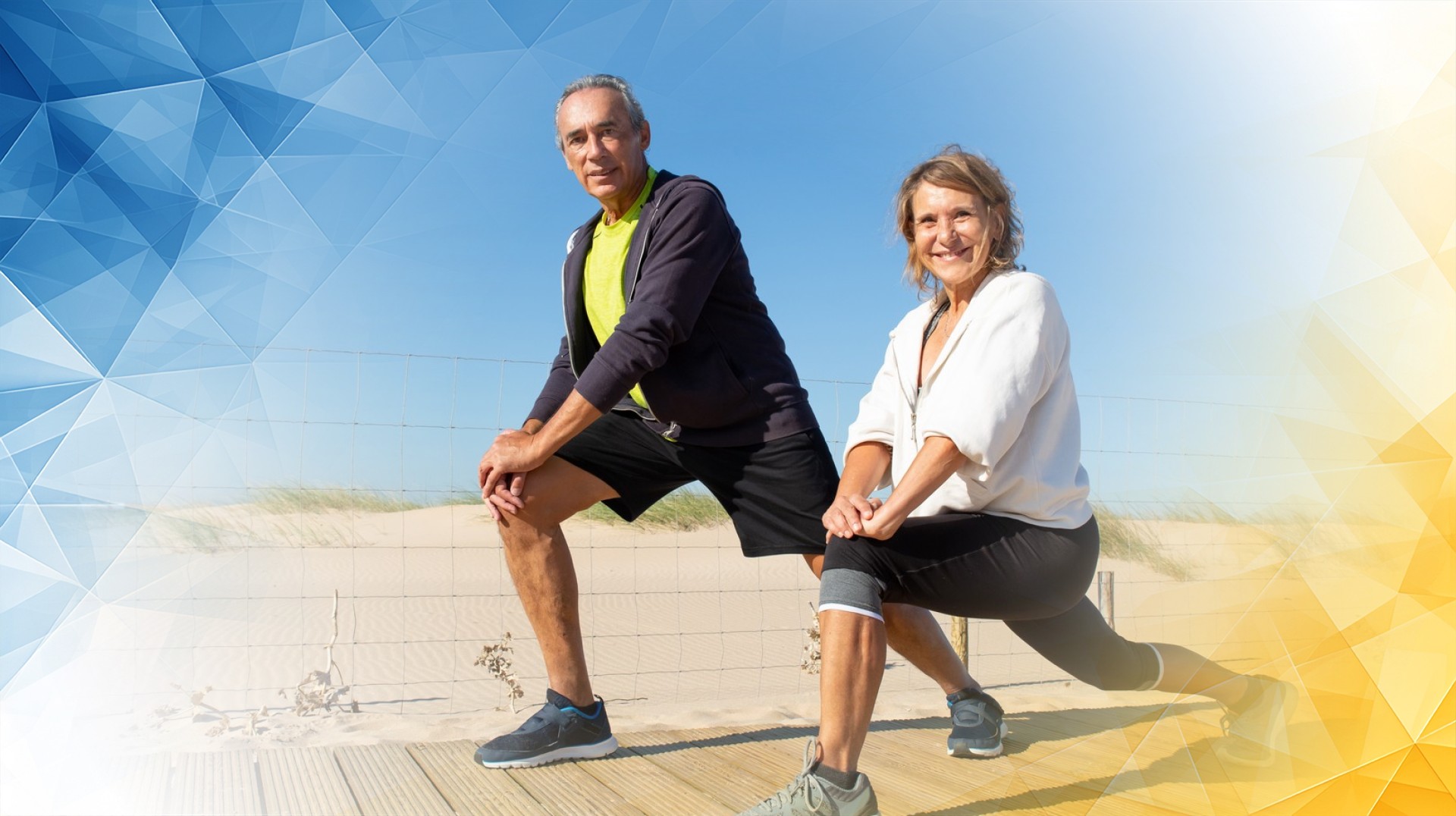



Introduction
Patellofemoral osteoarthritis (OA) is a specific type of knee arthritis that affects the joint where the kneecap (patella) meets the thigh bone. It feels different from other forms of knee OA because the pain is usually felt behind or around the kneecap. This pain often worsens during everyday activities like climbing stairs or hills, squatting, or standing up from a seated position. Many people living with this condition find that standard treatments don’t fully relieve their kneecap pain, which can be frustrating and limit their day-to-day life. As one study put it, “ Patellofemoral osteoarthritis is detected in a large number of patients and is responsible for multiple symptoms and signs, among which pain predominates.” In this article, we explore how Arthrosamid , an innovative treatment, might help ease these daily challenges, backed by the latest clinical insights.
Living with patellofemoral osteoarthritis can make simple movements painful and difficult. Tasks that require bending or putting pressure on the kneecap —like walking up or down stairs, going up hills, squatting, or cycling—can trigger sharp pain. For instance, some people notice discomfort when sitting down or pushing themselves up out of a chair, and cycling, once an enjoyable low-impact exercise, can become uncomfortable. These limitations often leave individuals feeling isolated, as their movement becomes restricted and their overall quality of life suffers.
Pain at rest is also a common complaint . Research highlights that “pain during rest is one of its main manifestations.” Additionally, patellofemoral OA rarely occurs alone—it’s frequently accompanied by other joint issues, which can complicate treatment. This complexity partly explains why treatments designed for more general knee arthritis don’t always work well for this specific type.
Arthrosamid is a type of hydrogel injection given directly into the knee joint. Think of it as a soft gel cushion that supplements the natural lubrication and shock absorption in the area around the kneecap . When osteoarthritis wears down these natural protections, movements can become painful due to increased friction and pressure.
By restoring some of this cushioning, Arthrosamid can help reduce pain during activities that typically hurt, such as climbing stairs or getting up from a chair. This relief may allow people to move more freely and comfortably in their daily lives. Because it is a minimally invasive option, it fits well alongside other treatments, aiming to target symptoms more precisely than general OA therapies.
Many patients receiving Arthrosamid report notable improvements, including less pain and greater ease in movement during previously difficult activities. According to clinical studies involving patients over a two-year period, this treatment “provided improvement in knee OA symptoms over 24 months, in older, non-diabetic patients with lower disease severity.” While individual responses vary, such findings suggest that Arthrosamid can be an effective part of a personalised treatment plan.
At the London Cartilage Clinic, Professor Paul Lee brings extensive expertise in orthopaedics and rehabilitation to help patients navigate their treatment options. The clinic prides itself on offering professional, compassionate care tailored to each person’s needs. It is important to remember, though, that treatment results differ from patient to patient, and no single solution works for everyone.
Arthrosamid may be suitable for those whose kneecap pain and movement restrictions persist despite trying conventional approaches like physiotherapy, medication, or lifestyle changes. If everyday tasks such as stair climbing, squatting, or cycling remain painful, it’s worth discussing Arthrosamid with a healthcare professional.
Because patellofemoral OA is often linked with other joint problems, comprehensive assessment is essential. As research points out, “the presence of this condition is usually associated with other joint injuries, and patients can be treated arthroscopically.” This highlights the importance of personalised care from a qualified clinician who can recommend the most appropriate treatment based on the individual’s overall joint health.
Conclusion
Patellofemoral osteoarthritis poses unique difficulties because of the kneecap’s special role and the way it moves. While traditional osteoarthritis treatments remain valuable, they may not always fully relieve the symptoms in this area. Arthrosamid offers a novel, targeted approach that cushions the joint, helping to improve comfort and mobility during daily activities.
With expert guidance from specialists like Professor Paul Lee at the London Cartilage Clinic , patients can access tailored care in a supportive environment. Ultimately, treatment decisions should be made following thorough clinical evaluation and personalised advice.
For individual medical advice, please consult a qualified healthcare professional.
Peña, V. W. H., & Vidal, J. (2020). Patellofemoral osteoarthritis: how do patients behave? Brazilian Journal of Implantology and Health Sciences, 2(12), 07-18. https://doi.org/10.36557/2674-8169.2020v2n12p07-18
Patellofemoral osteoarthritis causes pain mainly around or behind the kneecap, often worsening during stairs, squatting or standing. This differs from general knee arthritis, with pain typically triggered by kneecap movements. The London Cartilage Clinic specialises in such individualised assessments.
Arthrosamid is a hydrogel injection that cushions the knee joint, aiming to reduce pain from kneecap movement. At London Cartilage Clinic, Prof Lee applies advanced hydrogel techniques, offering tailored solutions based on clinical insights and each patient’s needs.
London Cartilage Clinic, led by Professor Paul Lee, provides dedicated orthopaedic and rehabilitation expertise. Professor Lee is renowned for his patient-centred approach, individual clinical evaluation, and offering advanced treatments, maximising comfort and mobility for those with joint conditions.
Arthrosamid may suit patients experiencing ongoing kneecap pain and restricted movement despite standard therapies. London Cartilage Clinic offers comprehensive assessments, with Prof Lee identifying if this innovative treatment aligns with each person’s joint health and treatment history.
Patients can expect expert clinical evaluation, compassionate care, and access to the latest treatments. Professor Lee designs personalised treatment plans, ensuring the chosen approach fits each patient’s lifestyle and symptoms, supported by the clinic’s commitment to outstanding orthopaedic care.
All our treatments are selected to help patients achieve the best possible outcomes and return to the quality of life they deserve. Get in touch if you have any questions.
At London Cartilage Clinic, we are constantly staying up-to-date on the latest treatment options for knee injuries and ongoing knee health issues. As a result, our patients have access to the best equipment, techniques, and expertise in the field, whether it’s for cartilage repair, regeneration, or replacement.
For the best in patient care and cartilage knowledge, contact London Cartilage Clinic today.
At London Cartilage Clinic, our team has spent years gaining an in-depth understanding of human biology and the skills necessary to provide a wide range of cartilage treatments. It’s our mission to administer comprehensive care through innovative solutions targeted at key areas, including cartilage injuries. During an initial consultation, one of our medical professionals will establish which path forward is best for you.
Contact us if you have any questions about the various treatment methods on offer.
Legal & Medical Disclaimer
This article is written by an independent contributor and reflects their own views and experience, not necessarily those of londoncartilage.com. It is provided for general information and education only and does not constitute medical advice, diagnosis, or treatment.
Always seek personalised advice from a qualified healthcare professional before making decisions about your health. londoncartilage.com accepts no responsibility for errors, omissions, third-party content, or any loss, damage, or injury arising from reliance on this material. If you believe this article contains inaccurate or infringing content, please contact us at [email protected].